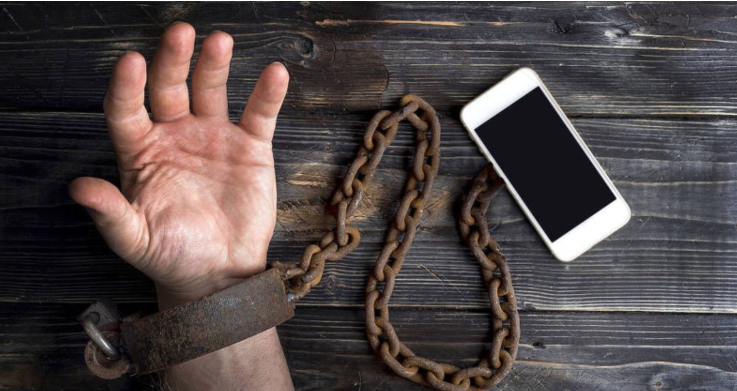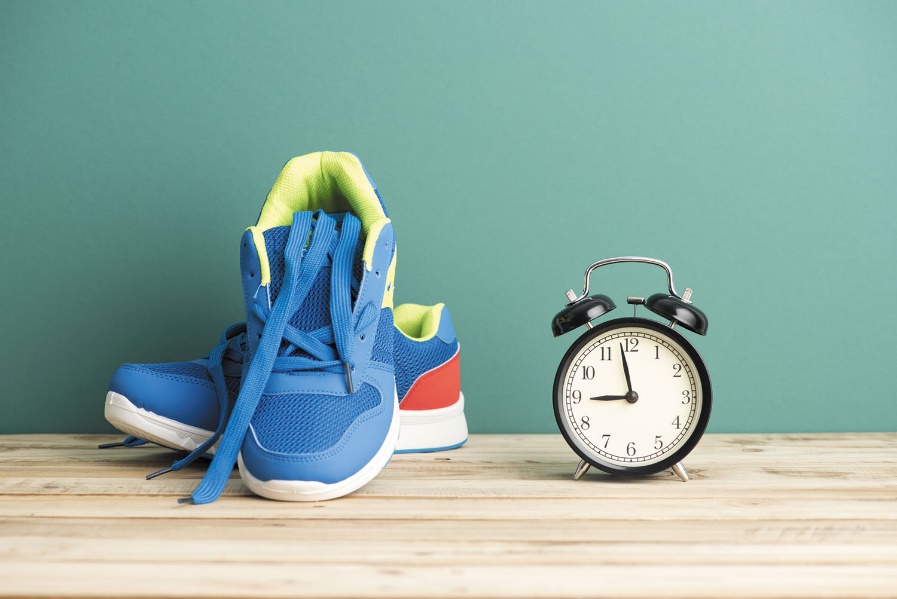Social Media Fix
Before you sink another day into your favorite social media app, consider the negative effects. That quick dopamine hit you get online that brings a wave of euphoria may be less attractive when you realize the possible consequences to your mental health. A major study found that every hour adolescents spend on social media adds up to more severe symptoms of depression. Do yourself a favor: keep a lid on your social media use by avoiding it when your attention is better spent elsewhere.
But how can you avoid such a powerful distractor? It helps to have a plan. Experts advise that you keep social media sites closed until a time you choose in advance to open them. Of course, a plan is only so good as your follow-through—be sure to stick to it! If self-control isn't your strong suit, there are several anti-social media apps that help you keep a lid on apps and websites that rob you of your productive time.
Overwhelming Email
Have you got mail? For some reason, emails just beg to be opened—even trivial ones. If you find yourself immediately opening every email, you may be wasting your mental energy along with your precious time. As one email is read and responded to, another pops up in its place. How can you maintain focus on your current project, rather than scratching the email itch every time a new one pops into your inbox?
Easing Email Fatigue
Schedule time in your workday for answering emails. Having a set time can free you from the burden of distracting emails, allowing you to concentrate on the issues that need your attention most of all. It may be best to completely shut down your email software if you continue to find it tugging at your time.
Cell Phone Disruptions
Do you have friends and family who love to chat on the phone? Once in a while this can be a pleasant diversion, but frequent phone calls easily become major concentration killers. That cell phone ringtone can interrupt the blocks of time you set aside for steady concentration and steal your productivity. Young people who use cell phones more often are also more likely to have trouble sleeping and symptoms of depression, one major study finds.
Silencing Your Smartphone
The easy answer to cell phone disruptions is to turn off the ringtone. If you expect an urgent call now and then, leave it on—but scan the caller ID before you pick up. That way you won't be as tempted to answer for less important calls. Better yet, just like your emails, you can set aside a particular time to check voicemails and review their importance. This can preserve your powers of concentration during times you really need them.
Is Multitasking Possible?
A phone call to Mom, a work email, an urgent request from your kids—think you can get everything done at once? It may seem that way, but chances are you're less effective than you think in these multitasking moments. In fact, many psychologists call multitasking a myth. When you throw yourself into multiple tasks at once, your attention is divided and even your memory is weaker.
Multitasking Solution: Focus
Multitasking may not be useful, but it can also be difficult to avoid. When your workday requires a lot, it’s hard to focus on one task at a time. But that is exactly what psychologists recommend. Try to “chunk” your day into pieces of time for each individual task. Give yourself a set time for each activity your work requires. Before you know it, you will be managing multiple tasks without multitasking and taking full advantage of your time.
The Problem With Boredom
Boredom can creep into anyone's day. For most people, daily tasks will include at least some that are boring. And when you are bored, you are more easily distracted, too. Before you know it, a simple, dull task drags on as you find more interesting things to do with your time, whether it's checking your phone notifications, surfing the internet, or cleaning your office desk—whether it needs it or not.
How to Stay Interested
Sometimes bribery works, even for yourself. Make a decision to give yourself a small reward for completing a task you find boring. That could be a five-minute break, a healthy snack, or a short walk for some fresh air. Whatever motivates you and doesn't detract from your focus can work. Another strategy is to make your boring task as interesting as possible. Make a game out of it—time yourself and try to beat your best time. Or put on some music you find pleasant but not too distracting. The answer to this problem will depend on what motivates you most.
Intrusive Thoughts
Intrusive thoughts can take many forms. You may worry about a loved one who is away from home. Or you may replay an argument in your mind again and again. Maybe you can't shake the burden of anticipating a stressful day at work the night before. Whatever the thoughts may be, they tend to distract you from what you need to get done. Everyone has an unwanted thought intrude into their mind now and then, but these can cause serious problems for people with obsessive-compulsive disorder.
How to Stop Intrusive Thoughts
If you have nagging thoughts that worry you, try putting them down on paper. Write out a list of the things you want to accomplish and plan a time that you can get them done. That goes for unpleasant experiences, too. If you had an argument and need to vent, turn to your journal. Having your thoughts on paper may make them easier to set aside for a while, giving you time to concentrate.
Stress Can Damage Focus
Feel overwhelmed sometimes? It happens to us all now and then. When everything seems to call for your attention at once, stress soon follows. Not only is stress hard on your mind, but it taxes your body too. Signs of stress include achy shoulders, tension headaches, and a pounding heartbeat. When you feel like that, it's easy for your focus to slip.
Striving Against Stress
Managing stress symptoms can improve your concentration. That might mean taking a short walk, meditating, or putting on a relaxing record. Stress balls (small balls made with squeezable material designed to be manipulated by the fingers or hand) may be helpful for maintaining your attention too. In one study, students who use them have been found to be less distracted, whether studying on their own or in a classroom.
Fatigue Saps Energy
What is fatigue? You may not know it when you feel it. Fatigue is an extreme feeling of exhaustion that can also leave your muscles weak. It is somewhat like the worn-out feeling people have when they battle the flu. People often find it more difficult to manage pain when they are fatigued. Some health conditions can cause fatigue, such as lupus, anemia, and depression. Fatigue can be short-term, or it can last and last, in a condition known as chronic fatigue. With all this going on, fatigue can leave you with poor concentration, sapping you of your energy and focus.
How to Manage Fatigue
There are natural ways you may be able to protect yourself from fatigue and protect your concentration. Some studies show that turmeric can reduce symptoms of fatigue, in particular the food compound curcumin found in turmeric. Sometimes fatigue is caused by vitamin B-12 deficiency. This is a vitamin your body needs to produce red blood cells, which supply oxygen to your body. You find B-12 in animal products, including fish, eggs, milk, and poultry.
Hunger Pangs Derail Concentration
You wouldn't drive your car without gas. So why attempt a task that needs your full attention without fueling yourself up first? Many health experts recognize the importance of breakfast for exactly this reason. If you skip the first meal of the day, you cut off your own fuel supply, leaving you vulnerable to short attention spans and hazy, muddled thinking. If you go too long without eating, you may also develop mild hypoglycemia, also known as low blood-sugar. Everyone experiences this from time to time, and it can be responsible for anxiousness and distracted concentration. Skipping too much time between meals or exercising heavily can lead to hypoglycemia. Alcohol use and certain diseases can cause it, too.
Stay Fed, Stay Focused
You need to stay fed to concentrate. When your stomach is growling, hunger becomes your first priority, rather than the task at hand. To stay focused, eat breakfast! And try to eat on a consistent schedule throughout the day, too. Some foods improve concentration better than others. If you snack, choose high-protein options like nuts, edamame, or cheese. Avoid simple starches like candy, gum, and white bread or pasta, which your body burns through quickly. Instead, give yourself the wholesome nutrition of whole grains.
Depression and Concentration
When people hear the word "depression," they often think of sadness. But depression often harms your ability to concentrate, too. Studies show that people with depression often report concentration challenges. Along with difficulty focusing, you may feel indifferent to things that should concern you, or you may feel hopeless.
What Works Against Depression?
Depression is quite common. At any given time about 8% of Americans have depression, and it is about twice as common in women as in men. It can cause difficulty at home, at work, and with friends. The most important thing to do if you think you have depression is to discuss it with a doctor or therapist. The good news is that there are effective treatments for depression, particularly antidepressant medicine, certain forms of therapy, or a combination of the two.
Medications Can Distract
Although they can improve your mood, some antidepressant drugs make it harder to concentrate. Some other medicines do, too. If this is something that concerns you, tell your doctor. Your doctor may recognize that a prescription or even a supplement is making it harder for you to focus.
Managing Medication for Focus
It may be that your medicine disrupts your concentration. But stay on it until you hear otherwise from a doctor. Your doctor may be aware of other options that could help you regain focus and stay on track with your overall health.
Is it ADHD?
It's normal for a kid to be less than excited about homework, and young children are often full of energy. But for some kids, lack of focus is more than just a trait of childhood. Some children cannot pay attention, as much as they may want to. Kids with ADHD (formerly called "ADD") can suffer serious challenges at home and at school. The condition can harm self-esteem, too. Many of the symptoms of ADHD continue into adulthood, which can cause poor performance at work, as well as difficulty in relationships.
Dealing With ADHD
ADHD is common, and it is treatable, too. Medications known as stimulants provide the most effective drug treatment. These medicines can ease hyperactive impulses and help children and adults with ADHD concentrate longer. Therapy can also be useful. Every person is different and finding the right combination of treatments is important.
Should I Use a Weighted Blanket for ADHD?
Many studies have examined whether a weighted blanket or weighted vest can help people with ADHD. However, the results have been inconsistent, and the quality of the studies has been mixed. Discuss the pros and cons with your doctor if you believe you or someone in your family might benefit from using a weighted blanket for ADHD.
Source: www.medicinenet.com








